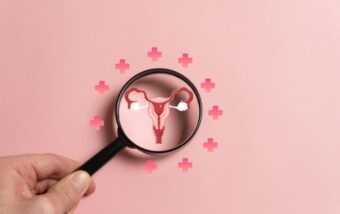Rewriting Your Menopause Journey, Part 3: Navigating Surprises
Posted: September 27, 2025 | By: Shanon Peckham

Stuck trying to figure out the cause of a chronic ache, insomnia, or dry skin? Ladies, before you drop a bunch of money on new medical treatments or even supplements, it’s worth investigating if your issue might be related to menopause!
“Women oftentimes know when they’re experiencing the most obvious signs and symptoms of perimenopause, like irregular periods, but it’s only when we start delving into other possible symptoms that they realize it could all be related. I call it a ‘journey of self-awareness,’ learning to tap into the symptoms that we sometimes don’t recognize or pay attention to.” – Zubina Mawji, MD, MPH, Menopause Specialist1
In general, age 50 is about the time your body cashes in on any chronic issues or diseases it may have been cooking up over the years.2 This is also the age most women experience menopause.3 Today, we’re taking a step beyond the typical menopause symptoms to see what other issues can be tied to “the big M” and why a holistic, women’s health-educated approach is so important for effective care.
And don’t forget to check out Part 1 and Part 2 of this blog series!
Unexpected Menopause Symptoms
While menopause is best known for its direct symptoms like hot flashes and irregular periods,3 it may also cause or aggravate a number of other unexpected issues. The natural depletion of estrogen during this transition can cause or contribute to issues like – you guessed it! – dry, itchy skin, sleep issues, and joint discomfort/mobility issues.1,3,4 It can also manifest as thinner hair and nails (plus hair in new places), body odor, acne, new allergies, weight gain, heart palpitations, random nerve firing, light sensitivity, and brain fog. Never-ending stomachache or a burning sensation in the mouth? That too.1,3,4
Your body is basically going through estrogen deficiency, which can trigger all kinds of unpleasant symptoms. So before you panic about an unusual new health problem or waste money treating a new symptom at the surface level, consider checking in with your doctor about your estrogen levels and do some research on your own to see how it may be related to menopause.
We discussed different menopause treatment options in Part 2, click here to check it out!
navigating a medical community that was not built for women
Menopause as we know it today really hasn’t been talked about for very long, which is probably one of the reasons why most people have a poor understanding of it.5 According to AARP, it wasn’t until 1821 – about 200 years ago – that the modern, scientific concept of menopause even emerged in the medical community.6,7 From the Greeks’ “uterine melancholy” to the Victorian era’s “hysteria”, women’s health issues have an unfortunate track record of being misunderstood, mistreated, dismissed, and even shamed.8 In a world where women have historically been treated as second-class citizens, it’s no surprise we have the stigmas and poor education we do regarding menopause.5
As one Yale professor puts it, “You were supposed to go to bed one night premenopausal and wake up the next morning postmenopausal.”9 – a limited view that persists in culture even now. While we may have upgraded from smelling salts to hormone replacement therapy, women still have to fight hard for the right care. On top of the pharma-fueled over-prescription of certain medications/procedures and insurance-policed care plans in America,10,11 these lingering stigmas and an under-educated medical field can make it incredibly challenging for us as women to get care providers to address the root of our symptoms. We deserve way better.
Going to bat with a better understanding of how menopause can impact all areas of health and prioritizing doctors who practice a more holistic approach can help you get the care you need to feel empowered and comfortable through this multi-decade life transition. Never be afraid to get second opinions, ask for cost breakdowns, revoke your consent, or pursue treatments that better align with your personal beliefs – you are your own best advocate and you don’t have to settle for less just because society tells you “it is what it is.”
Sources
1 29 Perimenopause Symptoms You May Not Know About, Cleveland Clinic
2 7 Common Health Problems That Can Strike After 50, AARP
4 Low Estrogen, Cleveland Clinic
5 Rewriting Your Menopause Journey, Part 1: Perspective Matters
7 A Brief History of Treating Menopause, AARP
9 After Decades of Misunderstanding, Menopause is Finally Having Its Moment, Yale School of Medicine
10 Doctors Prescribe More of a Drug If They Receive Money from a Pharma Company Tied to It, ProPublica
11 Annual Exams and Your Insurance: Your Questions Answered, St. John’s Health
Posted in:



